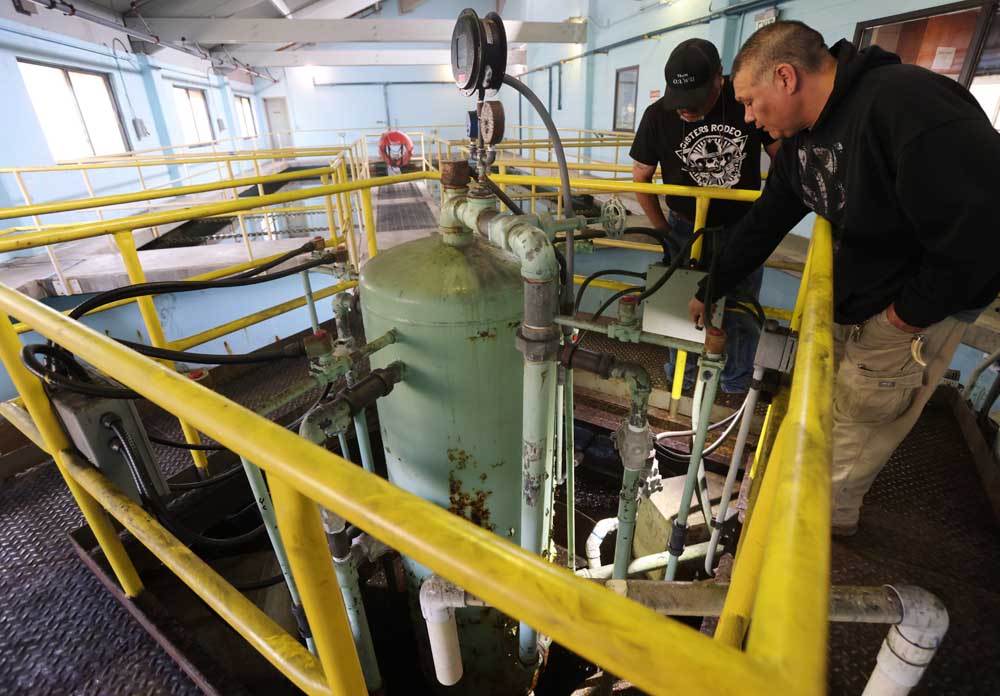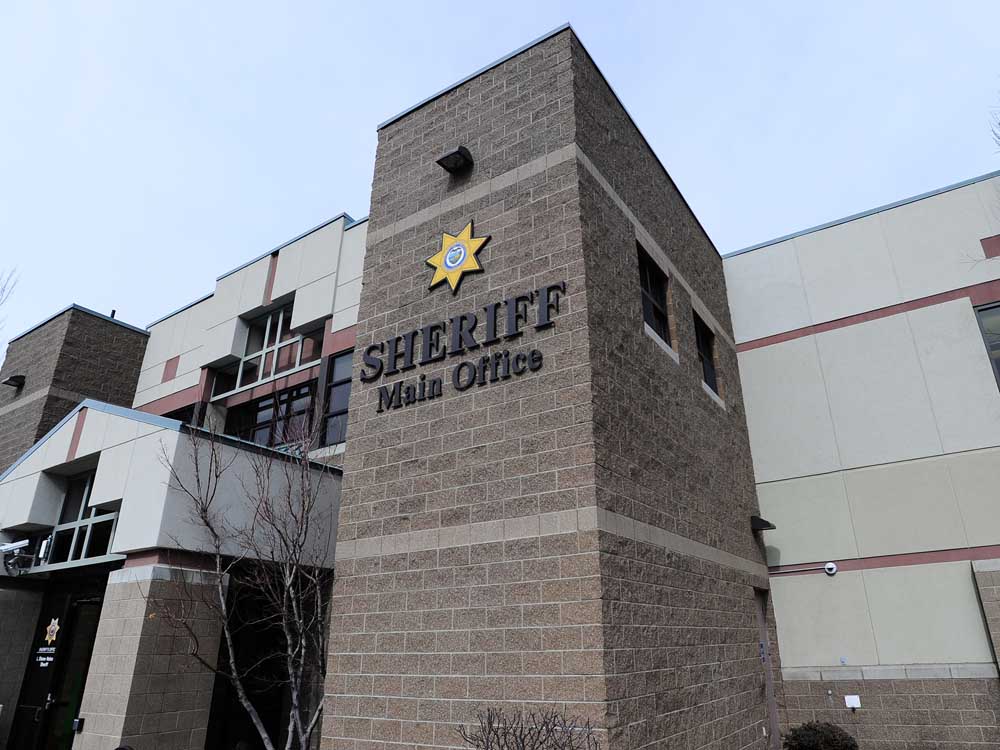EPA lifts years-old emergency order as Warm Springs water system stabilizes
Published 3:01 pm Friday, May 23, 2025

- In this June 22, 2022, file photo, Chico Holliday, left, Warm Springs water and wastewater supervisor, and Ron Palmer, plant engineer and operator, examine the aging filtration system in the Warm Springs Water Treatment Plant.
For much of this decade water delivery systems on the Warm Springs Indian Reservation suffered from repeated failures that forced residents to boil water, or go without water at all for weeks on end.
Now Warm Springs says cooperation with state officials have paid off — the last boil water notice occurred over a year ago and the system has stabilized.
The forward progress has been enough for the U.S. Environmental Protection Agency to lift an emergency order that had been in effect since 2019, according to a statement released by Warm Springs on Friday.
Trending
“It took six or seven years to get to where we are today,” said Chico Holiday, general manager of the public utilities for the Confederated Tribes of Warm Warm Springs. “Some of that was (repairing) the distribution system, the pressure-reducing valves and some of it was in repairing pipework.”
The tribal water system is now in compliance with the 1974 Safe Drinking Water Act, which authorizes the Environmental Protection Agency to set national health-based standards for drinking water to protect against both naturally-occurring and man-made contaminants that may be found in drinking water.
System upgrades
Reservation officials credit state funding it received to make critical upgrades to the system. The assistance package from the Oregon Legislature amounted to $7.8 million.
Repairs included reconstruction work on 27 pressure-reducing valves. Upgrades and modernization of antiquated equipment and controls were also made at the Dry Creek Water Treatment Plant on the reservation.
Holiday said officials are working on installing a telemetry system that will allow workers at the water treatment plant to remotely monitor reservoir levels, which frees up workers’ time to conduct more routine maintenance projects.
Some water mains were also upgraded, including the one that crosses Shitike Creek, the location of repeated water main breaks that shut down water supplies for extended periods in 2019 and 2020.
Trending
During the shutdowns and boil water notices, supplies of bottled water were available for tribal members to pick up at a central location on the reservation. A portable shower truck was also available for bathing.
Water treatment plant funding
Federal funding of around $23 million has been put towards the design work for a new water treatment plant. Total costs to build the plant could top $125 million, the tribes said in a statement. If the funding comes together, the facility could be completed in seven to 10 years.
But Holiday says funding for general repairs remains a challenge. That is due to diminishing revenues on the reservation. In the past, funding for repairs came from the Warm Springs Forest Products mill, which is now shuttered.
Operating budgets at other entities on the reservation, such as Kah-Nee-Ta Hot Springs Resort, are also tight, said Holiday.
“My budget is entirely based on whatever revenues come in, so that fluctuates year-by-year,” said Holiday. “With the new administration that is in now, that jeopardizes a lot of federal funds, which is scary.”
More repair work needed
Holiday says if emergency funds are needed to replace a failing pump or other critical infrastructure, applications for aid can still be sent to state agencies. Given that a lot of the underground pipes are 65 to 70 years old, failures and leaks are still a concern, he said.
“We have asbestos pipes in the ground for our water mains. We still have terracotta pipe for our sewer systems. We have river-rock manholes,” he said.
Holiday says besides the construction costs for the new water treatment plant, getting piped infrastructure up to speed on the other parts of the reservation could cost upwards of $50 million.
“That would start phase one, two three and so and so forth,” said Holiday.
“I would get that infrastructure replaced. We know where those bad spots are. We are continuing to maintain them but as funds become available or if they collapse or deteriorate bad enough, we have to go in there and make those corrections.”










